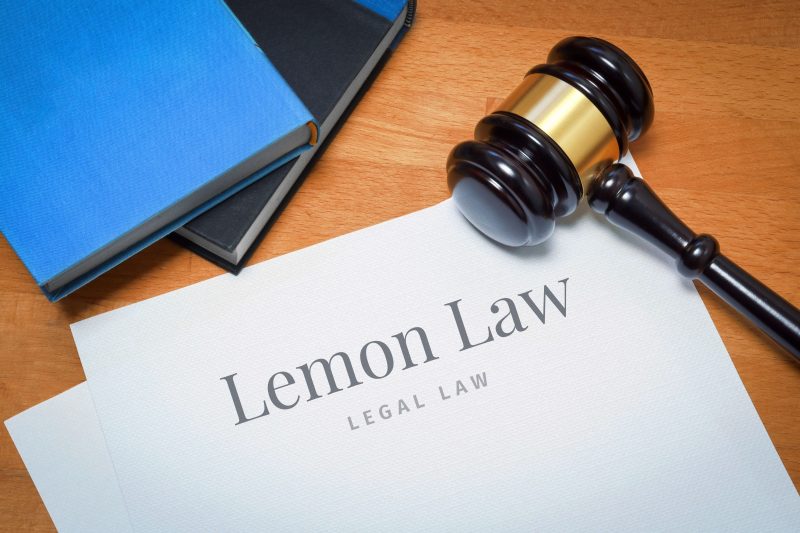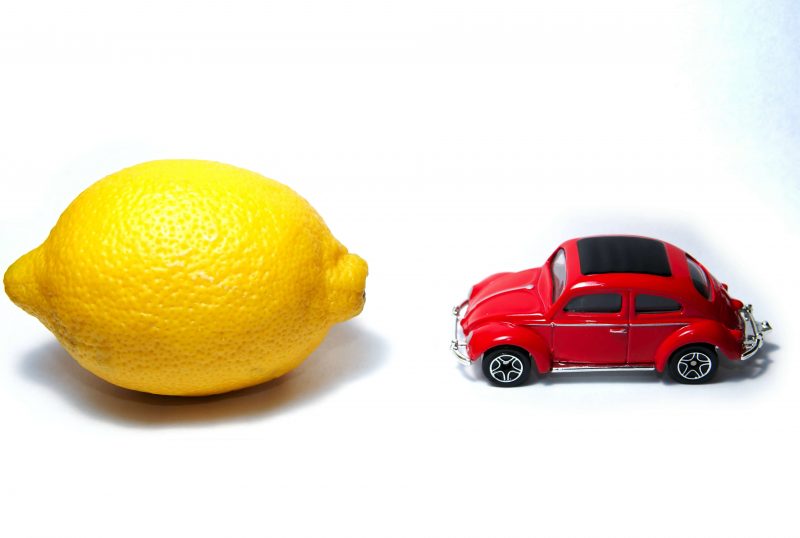Okay, first things first. What, pray tell, is a Lemon Law, you ask? And why should we bother to explore it here on our much-hallowed blog at eTags? Well, you know we’re obsessed with all things automotive related, and honestly, we’d be remiss if we didn’t broach the subject of the Lemon Law. We’re so sure of the value of this topic, that by the end of the article, if you don’t agree, we’ll eat our hats. (Or driving gloves.)
Use eTags© to Quickly Complete Your DMV Service. Renewals, Title Transfers and More, All Online!
The Lemon Law is defined in a slightly different manner depending on where you live.
Each state in the United States maintains minor variations, but on the whole, their similarities outweigh their differences. At its core, the Lemon Law states that any new vehicle that has spent more than thirty (30) days in the shop for repairs or has been sent for alteration a certain number of times for the same issue and has still not been fixed must be eligible for a refund or replacement.

Yes, that was a hefty sentence right there. Let’s break it down. Or better yet, let’s dive into a true story told to us by one of our loyal clients (and biggest fans) about his first experience with the Lemon Law. A few years back, this gentleman – let’s call him Max – purchased a high-end SUV for his family vehicle. Delighted with his buy and excited to ferry the family to and fro in their new, fancy ride, you can imagine his dismay when in the first few weeks of ownership, a major problem arose.
The first thing to go on the vehicle was the turbo. No more quick acceleration, no more high-performance, and no more of the power Max was promised when purchasing his car. And so he brought his new vehicle back to the dealership, where, under warranty, they happily agreed to fix the mechanism.
The trouble escalated, however, as the attempt to repair the damaged turbo went from one initial visit to several different visits. Meaning, the problem was recurring, and Max had less use of his new SUV than if he’d simply borrowed a ride from a neighbor. In short, the new vehicle had spent over sixty days in a repair shop while Max labored in a loner car each time the turbo went kaput.
Realizing that he’d clearly not gotten what he’d paid for, Max consulted an attorney, who told him about the Lemon Law. In his state, Max had already qualified for all the requirements necessary in order to file a Lemon Law suit against the dealership, and so he went forward with the claim. In the end, the dealership, recognizing that the fault was indeed in the manufacturing, returned to Max his down payment as well as all fees and installments paid over the time the SUV was under his ownership.
This, friends, is what the Lemon Law can do.

But it’s not always as simple or as straightforward as Max’s case. Depending on the jurisdiction of your state, the law will differ a bit. So we thought we’d point out some key factors in what qualifies as a lemon in a few different territories.
In California, a new car, truck, can or SUV can be considered a Lemon if:
- The problem showed up within the first eighteen months of delivery (consumer purchase) or within the first 18,000 miles driven
- The issue is covered under manufacturer warranty
- The owner does not have full use of the vehicle, and/or the issue causes a reduction in safety or value
- The vehicle has seen the inside of a repair shop for more than thirty days (not necessarily consecutively)
In addition, you must have:
- Submitted the vehicle for repair a minimum of four times with no concrete resolution to the issue
- Taken the car for repair at least twice for a problem that could cause death or serious injury, and it has not been properly fixed

In New York, the conditions are similar. To be a Lemon, the vehicle must:
- Be within two years of purchase or 18,000 miles of use
- Be purchased, leased, transferred, or registered in the state of NY
- Be used mainly for personal reasons
Similar to California, the vehicle must have:
- Visited the garage for repairs at least four times without seeing any lasting success.
- Spent a total of thirty days out of service to the owner
It’s interesting to note that in New York, there exists a Lemon Law for used cars as well.
In order to qualify as a Lemon in NY, a used car must meet the following criteria:
- Purchased or leased from an authorized dealer in New York
- Has a lease or purchase value of a minimum of $1,500
- Has fewer than 100,000 miles on it at the time of purchase
- Is primarily used for personal reasons

All that said, the Lemon Law is not always an easy case to prove. It isn’t a get-out-of-jail-free card, nor is it a way to take advantage of a system put in place to protect the consumer. Passed in 1975, and originally called the Magnuson-Moss Warranty Act, this Federal law was enacted in order to make product warranties more transparent and enforceable.
However, it wasn’t until 1982 that the first Lemon Law for vehicles was passed. John J. Woodcock III, a Connecticut legislature representative, saw this law introduced in response to one of his district residents having bought a vehicle for $7,000, only to have it turn out to be a Lemon. Without the law siding in his favor, the resident would have been at a total loss, seeing as how the warranty given him was riddled with loopholes that absolved the seller of any liability.
All this said, it’s fairly important to know whether the car you’ve purchased is breaking down due to misuse or abuse, or if it is truly a Lemon. If you find that your new vehicle is constantly in the shop for an issue under warranty, it might be a good idea to take a look into the Lemon Law in your state. Because outside of lemonade and limoncello, no one wants a lemon.








